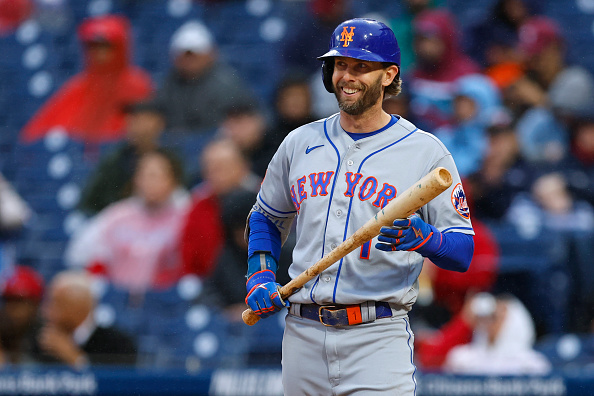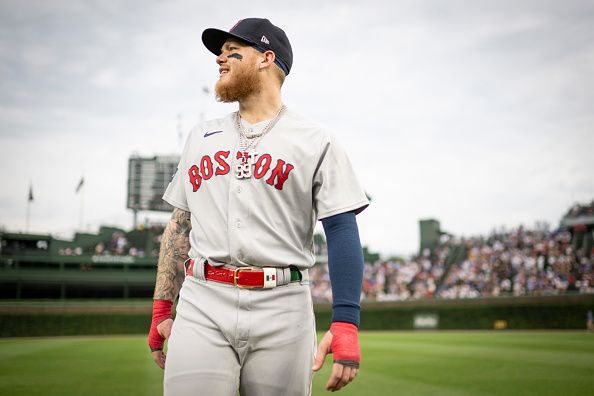July 31st broke the record for deadline day trades with 30, eclipsing the 2016 mark of 18. Putting a hard deadline on the industry seemed to motivate front offices this year and could signal increased activity for years to come.
The perception among fans seemed to be that the 2019 MLB trade deadline would be a dull affair. July 31st would come and go without any major names moved with exceptions of the Marcus Stromans and Trevor Bauers of the world. If one stopped following at the 4:00 PM EST deadline, then they could have certainly justified that line of thinking. However, post-deadline deals trickled in, since they may not have been consummated until the third hour of the afternoon. Nicholas Castellanos was the first big shoe to drop, going to the National League and the Chicago Cubs. Then, the mega-deal of 2019 transpired: Zack Greinke to the Houston Astros. Greinke not only solidifies that rotation, but the Astros arguably have a mega-rotation with Justin Verlander, Gerrit Cole, and now Greinke leading the charge. Jeff Luhnow, Astros General Manager and President of Baseball Operations, is clearly going for the throat in the American League.
This article examines the pros and cons of the singular trade deadline in its first year of existence.
Pros:
More Activity
The baseball industry is a notoriously slow industry in their decision-making. Free agents Bryce Harper and Manny Machado didn’t sign until February of this year, leaving two of baseball’s young stars without a team a month out from Opening Day. Baseball requires a deadline in order to see player movement and the new rule change brought just that. A record number of deadline day deals were made and prospect movement was abundant, especially compared to previous deadline days.
Forcing Teams to Commit (Either Way)
Brodie Van Wagenen may have shocked the baseball world when he traded for Marcus Stroman, one of the top available starters, when the Mets had a record of 50-55, held a -20 run differential, and trailed the second Wild Card by six games. In the first ten games after completing that deal, they went 9-1, improving their run differential by 33 runs and moving to just a half-game back of the second wild card. Granted, they have had a softer schedule, but a big move to add could have reenergized a team with little playoff aspirations in July. Mets ownership hired Van Wagenen because he promised to win right away. Now, would the Mets have traded Noah Syndergaard or Zach Wheeler if a deal was on the table for fair value? Probably. But not having an August deadline forced the Mets into a path for the rest of a season that their play in August couldn’t dictate.
Cons:
Less Time to Decide
As just mentioned, in the past how a team performed in the weeks after the July trade deadline could be a major factor into August trades. Whether an injury or a hot streak, teams could better evaluate their progress and potential playoff hopes with more games played and more of a sample size. The problem still exists, where the Wild Card Game has been so devalued, that if a team believes that can’t advance in the playoffs, they may choose to sell or stand pat.
No More August Mega-Deals
Bottom line, if the trade deadline were to be extended through August, we would have seen Madison Bumgarner traded. The Giants have suddenly fallen in the Wild Card standings enough to justify to fans trading their beloved starter. MadBum was a true x-factor in the 2014 playoffs, and although he may not have garnered a major package at the August deadline, there could have been serious takers for his talents. The Brewers and Yankees make the most sense because they will need that pitching in the playoffs since they lack rotation depth.
Overall, MLB has done the game justice by simplifying the trade deadline, considering just how slow the industry is moving nowadays. Teams like the Mets and Astros clearly chose an aggressive path, which certainly empowers their fanbases to pay close attention to the second half, whereas Blue Jays fans know (hopefully) where their front office is taking the direction of the team in a rebuild mode. We saw a record number of trades on deadline day and if a team like the Mets make the playoffs, it may encourage other GMs to take the aggressive path in the coming years.







